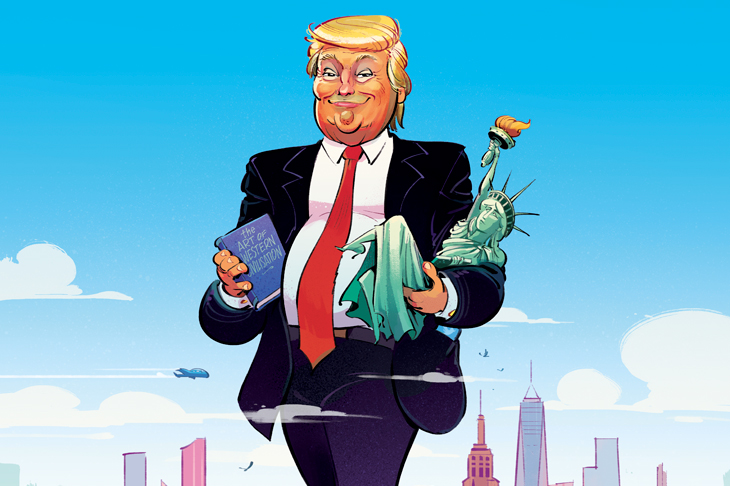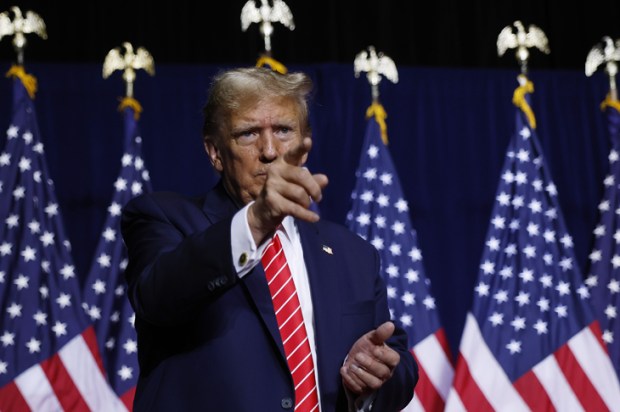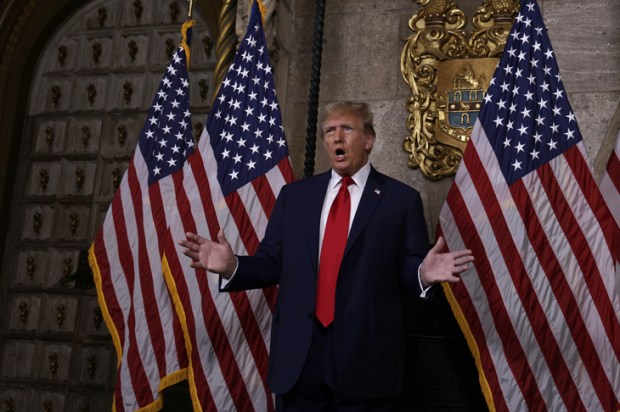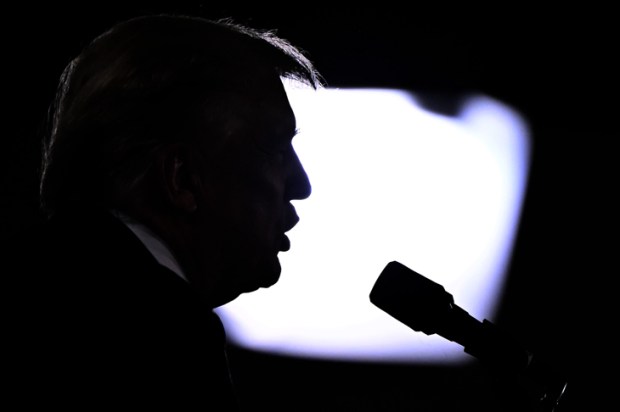In his 1977 book The Age of Uncertainty, the American economist John Kenneth Galbraith depicted the great leaders of history as carrying a single characteristic in common. ‘It was the willingness to confront unequivocally the major anxiety of their people in their time’, he wrote, ‘This and not much else is the essence of leadership.’ Galbraith was a confidant and advisor to President John F. Kennedy but his words also ring true for Donald Trump’s presidency. While leftist elites sneer at the worries of the American people as ‘a basket of deplorables’, Trump has taken them seriously. With patriots objecting to illegal migrants and contraband pouring across their southern border, the new President is building a wall. With workers facing job insecurity and declining competitiveness, Trump is cutting taxes and slashing business regulation to reignite economic growth. With people in suburban and small-town America worrying about the rise of political correctness and identity politics, Trump is taking a stand for the cultural norms of free speech and meritocracy. He is confronting unequivocally the major anxieties of his people, giving his Presidency the green shoots of greatness.Yet a weakness remains, a nagging, unresolved issue providing fodder to his critics. What role should the United States now play in global leadership? Despite the rise of China and the rebirth of Russian assertiveness, America is still the world’s pre-eminent nation, both in economic and military power. There is a compelling logic to its leadership mantle, but not in the way the establishment thinks about it. In recent years, globalists have invented a new term for maneuvering the US into a bigger role internationally than American national interests actually require. It’s a clever word game. They want the US to abide by a ‘rules-based international order’. This is a system by which supranational bodies (such as the UN, EU, Nato and WTO) define the rules of global engagement, while the US is expected to fund and enforce them. It’s a winning strategy for everyone, except American taxpayers. In defence policy, the US is expected to be the world’s policeman, spending vast sums on military protection for countries that are unwilling to protect themselves.
During his Presidential campaign, Trump insisted that the era of American leadership exercised through large-scale military intervention had come to an end. Similarly, globalists have expected the US to champion free trade, even though it’s running large deficits with its major trading partners. This is an economic sucker punch past presidents have fallen for, but not Trump. These two developments – one military, the other economic – have added to the medical condition known as Trump Derangement Syndrome. The President’s foreign policy critics are parroting a single line: that Trump has vacated the post-World War II tradition of American global leadership. Yet to people across the Western World worried about a loss of civilisational values, Trump is seen as a strong global leader. He has inspired a generation of activists committed to the fight for Western culture, and to defend the timeless ideals of nation state Enlightenment and the Judeo-Christian tradition. It might not be a fight that excites a Macron, a Merkel or a Theresa May, but so what? It’s the struggle of our lifetime, to push back the march of post-modernism and cultural Marxism through public institutions. Society is being ripped apart by false notions of ‘fluidity’. The postmodernist project, especially in the education system, aims to convince people that our established understanding of history, national culture, the family unit, gender and sexuality are invalid. Having, with the fall of the Berlin Wall, lost the struggle over economic policy, the Left got smarter. It shifted its focus from material Marxism to cultural Marxism. Instead of trying to socialise the means of production, it is now trying to socialise the means of individual expression and belief. It’s trying to colonise Western society, institution by institution, to achieve the goals of revolution from within. Increasingly, those fighting the takeover feel like a minority cause, an underground resistance. They have few public champions, few reasons for optimism. Naturally, they look to Trump for leadership, as our last best chance of victory. The President likes to speak frankly about the things in front of him. His pragmatic, evidence-based approach to issues contrasts sharply with the taboo words of PC-language control. For his followers, every time Trump sparks a controversy with his outspokenness, it’s a big victory for freedom. This is also true of his attitude to identity. Trump believes in the supremacy of the individual, in judging people on merit, by their work ethic and creativity, rather than race, gender and sexuality.
These are the essential elements of civilisational leadership. Trump stands for the freedom of the citizen in the nation state. That is, the right to free speech, to meritocracy, to national pride and a freestanding national culture. The key political divide is no longer between Left and Right; it’s between civilisational and non-civilisational leaders. Trump is on the right side of history, with domestic ascendancy seemingly assured. He now needs to turn his mind to an even greater challenge, promulgating a Trump doctrine: a new brand of American global leadership based on the defence of Western civilisation.
Got something to add? Join the discussion and comment below.
Get 10 issues for just $10
Subscribe to The Spectator Australia today for the next 10 magazine issues, plus full online access, for just $10.
You might disagree with half of it, but you’ll enjoy reading all of it. Try your first month for free, then just $2 a week for the remainder of your first year.















Comments
Don't miss out
Join the conversation with other Spectator Australia readers. Subscribe to leave a comment.
SUBSCRIBEAlready a subscriber? Log in